The Americas Archive
Free Newsletter
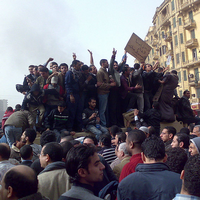
It’s too soon to know how the events of this fast-fading year will ultimately reshape our world, but the upheaval we witnessed in 2011 will most assuredly keep future historians ponderously occupied. Indeed, it was a year of uprooting, breaking up and tilling the geopolitical soil — a year that will have mattered in many ways, many of which we don’t yet fully understand, but that clearly represent a turning point. Ten events in particular reshaped the global landscape in 2011. The Arab Uprisings. The spark lit by Tunisian food vendor Mohammed Bouazizi at the end of 2010 set much […]
Canada sent forces from the Canadian Special Operations Regiment earlier this month to train Mali’s military to fight against al-Qaida in the Islamic Maghreb. In an email interview, Joel Sokolsky, principal and professor of political science at the Royal Military College of Canada, discussed Canada’s overseas military deployments. WPR: In addition to Iraq and Afghanistan, where has the Canadian military deployed over the past decade, and how have its deployments impacted both the Canadian armed forces and the civilian leadership? Joel Sokolsky: Notwithstanding a Canada First Defense Strategy that suggested a focus on the direct defense of Canada and domestic […]

Europe’s unresolved debt crisis has been the major problem facing the global economy of late. Beyond taking center stage for economic policymakers, Europe’s problems led investors to seek refuge in the safe haven of U.S. debt, dubiously anointed the “least dirty shirt” of the global economic landscape. As investors pulled out of faster-growing economies, the capital flight drove down the value of those countries’ currencies, many of which had been bid up at the beginning of 2011. While the problem of overvalued currencies may have receded over the summer, the underlying issue of currency manipulation still threatens the global economy. […]
Reacting to violent protests opposing the $4.8 billion Conga mining project in the state of Cajamarca, Peruvian President Ollanta Humala declared a state of emergency last week before replacing more than half of his cabinet and swearing in a new prime minister over the weekend. Michael Shifter, president of the Inter-American Dialogue, told Trend Lines that these developments reflect a shift in Humala’s sympathies and strategies. The president is looking to reassure foreign investors, Shifter said, even if that means isolating leftist supporters. “It is hard to interpret this any way other than as a break from the left,” he […]
Brazilian police staged a massive security operation in November to take over the Rocinha neighborhood in Rio de Janeiro as part of a broader effort to boost security prior to the World Cup in 2014 and the Olympics in 2016. In an email interview, Benjamin Penglase, an associate professor of anthropology at Loyola University Chicago, discussed Brazil’s internal security push. WPR: What has Brazil’s security policy historically been regarding Rocinha and other similar areas? Benjamin Penglase: Favela neighborhoods such as Rocinha have generally seen only sporadic policing, often only in response to high-profile criminal incidents. The state’s absence allowed drug-trafficking […]
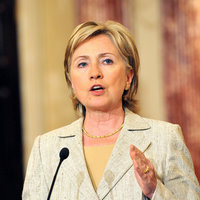
In the Nov. 22 Republican presidential debate, several candidates argued that the U.S. can no longer afford its foreign aid budget. In previous debates, former Massachusetts Gov. Mitt Romney went even one step further, explaining that the United States should not borrow money from China just to give it to other countries as aid. Instead, he argued, we should let the Chinese give aid directly to foreign countries if that is what they want to do. Romney is right to mention China, but he draws the wrong conclusion. China already provides large amounts of aid to countries throughout the developing […]
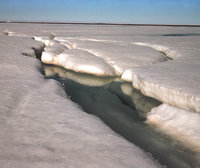
Recent moves by Russia, Norway and even China have put a spotlight on the High North, where warming temperatures have led to greater seasonal ice melt and access. With increased future activity in the Arctic inevitable, the United States must begin to address some of the potential security challenges that could result. As part of this effort, the European Command (EUCOM) — the U.S. military command responsible for the Arctic — must leverage the progress made by the Arctic Council in nonsecurity matters to facilitate expanded security cooperation efforts in the region. The Arctic Council has successfully raised awareness of […]
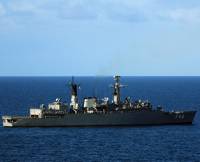
In the first decade of the 20th century, Brazil attempted to stake out a space for itself as a major Western Hemisphere naval power, ordering a pair of dreadnought battleships from British yards in 1906. Dubbed Minas Gerais and Sao Paulo, these ships were as capable as any then in operation among the world’s navies, and indeed outgunned early British, German and American contemporaries. The acquisition of the two ships — as well as the planned purchase of a third — set off a naval race in the Southern Cone, with Chile and Argentina soon following suit. Unfortunately, the battleships […]
The recent formalization of a new regional cooperation bloc that includes every country in the Americas except Canada and the United States has been largely dismissed in the English-language media as little more than a new soap-box from which the region’s more flamboyant leftists, namely Venezuelan President Hugo Chávez, will now spew anti-American rhetoric. To some extent, the potential for such an outcome exists. But it is also worth noting that the Community of Latin American and Caribbean States, or CELAC by its Spanish acronym, has now been given an official stamp of approval from not just left-leaning heads of […]
During a recent visit to Ottawa, Israeli Defense Minister Ehud Barak and his Canadian counterpart, Defense Minister Peter MacKay, announced that military cooperation agreements between Israel and Canada would be forthcoming by end of the year. In an email interview, Rex Brynen, a professor of political science at McGill University, discussed Canada-Israel relations. WPR: What is the recent history of Canada-Israel diplomatic, economic and security relations? Rex Brynen: While Canadian-Israeli ties have long been very friendly, there has been a marked shift to even closer relations under Canadian Prime Minister Stephen Harper and recent Conservative governments. This has been manifest […]
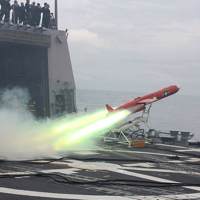
It was an ignominious start for a potentially profound technological revolution. On June 21, 2011, a U.S. Navy MQ-8 Fire Scout robotic reconnaissance helicopter was shot down near Tripoli by forces loyal to then-Libyan dictator Moammar Gadhafi. The 24-foot-long, gray-painted drone was one of two launched from the frigate USS Halyburton and remotely controlled by operators aboard the vessel. Carrying classified sensors, the Fire Scouts likely helped detect targets for NATO forces flying top cover for Libyan rebels. The Fire Scouts’ Libyan missions represent the major combat debut for the U.S. Navy’s growing arsenal of unmanned vehicles. In coming years, […]
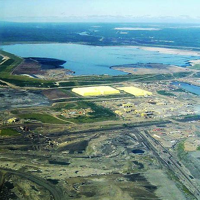
The United States is on the verge of an industrial renaissance, according to energy experts enthusiastic about technological advances surrounding the “fracking” of shale gas and the processing of “tight oil.” America is sitting on a century-worth of natural gas, and the Western hemisphere boasts five times the reserves in unconventional oil as the Middle East claims in the conventional category. Suddenly, all our fears of resource wars with China and never-ending quagmires in Southwest Asia seem to melt away, heralding with great certainty another American century based on the promise of energy independence. As “deus ex machina” moments go, […]
